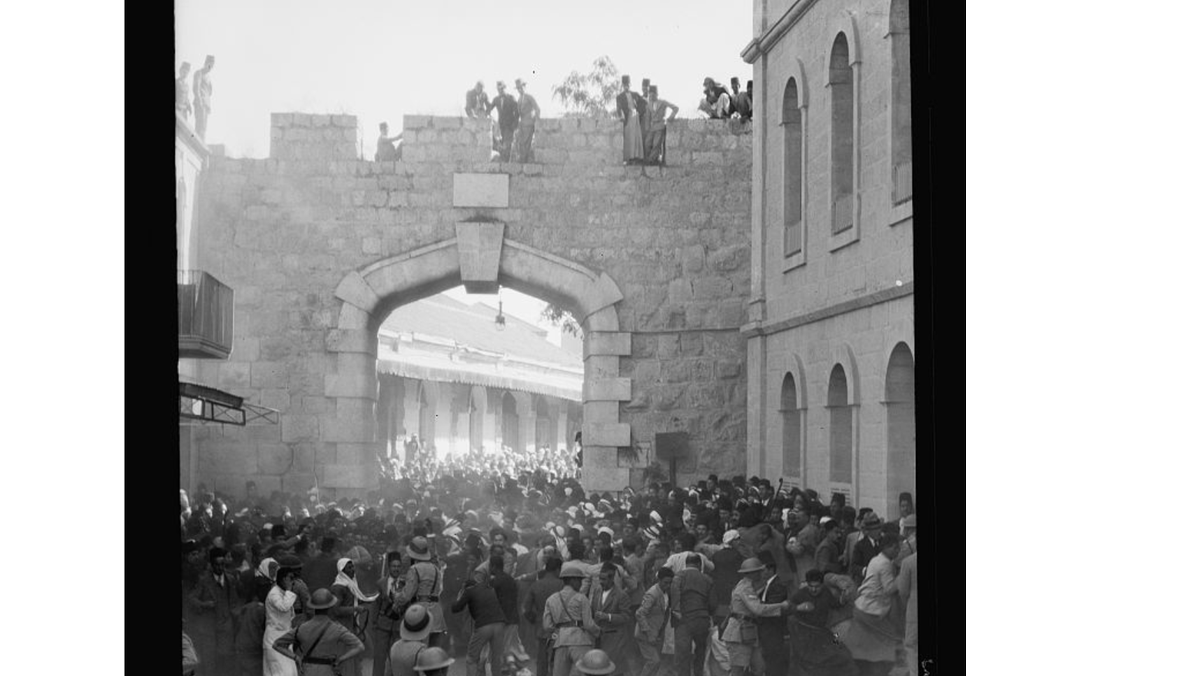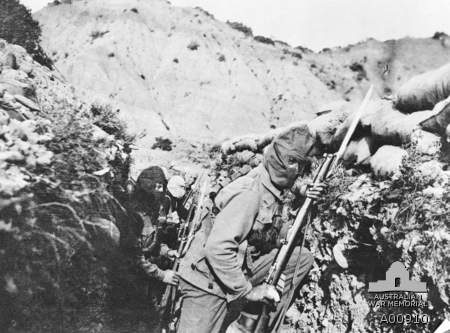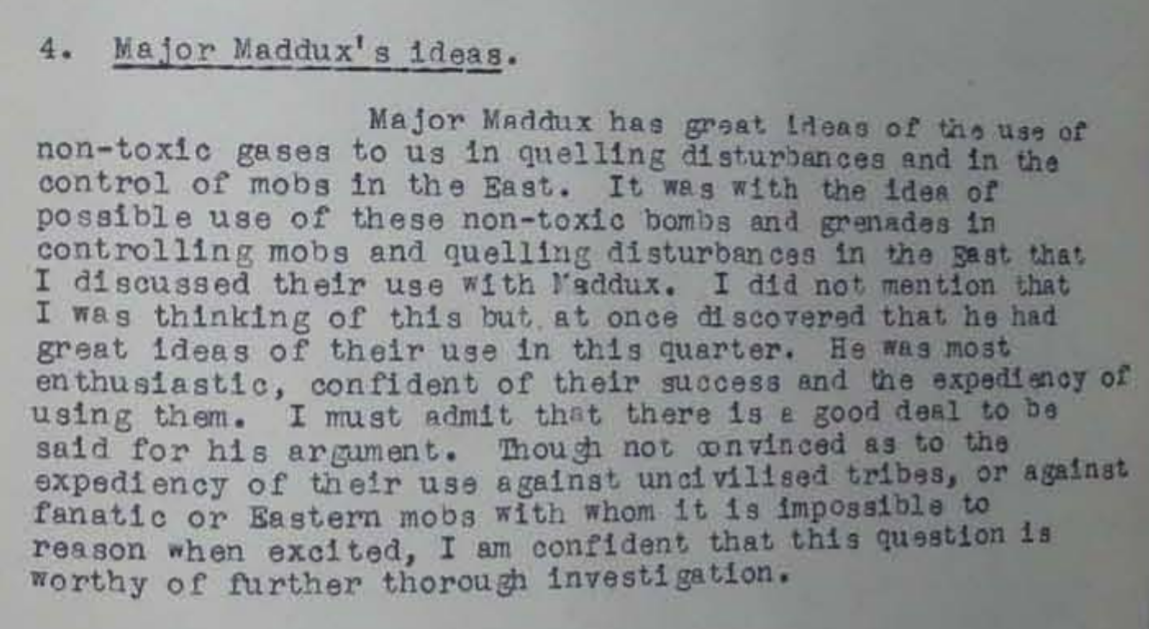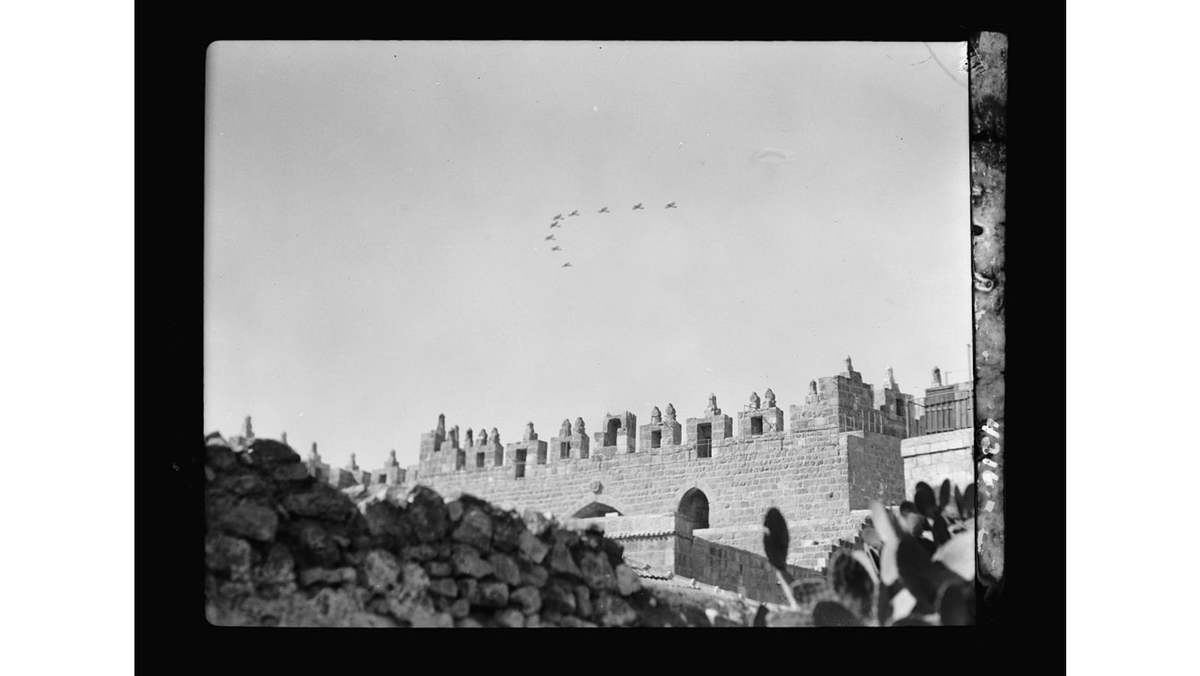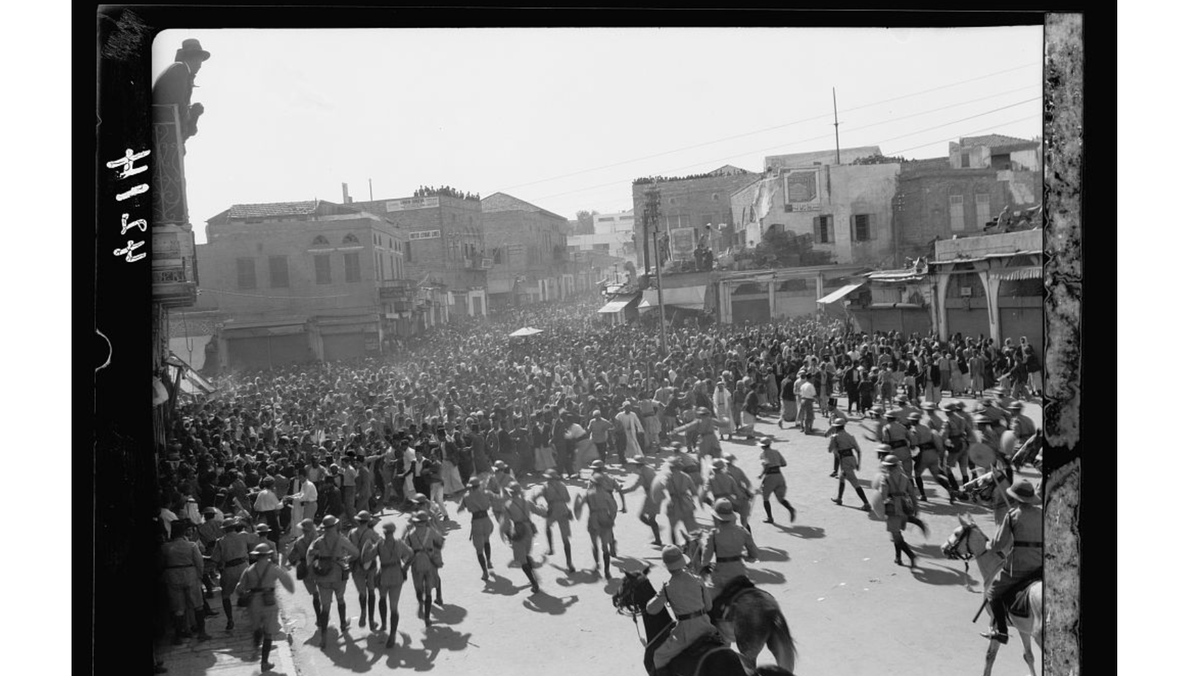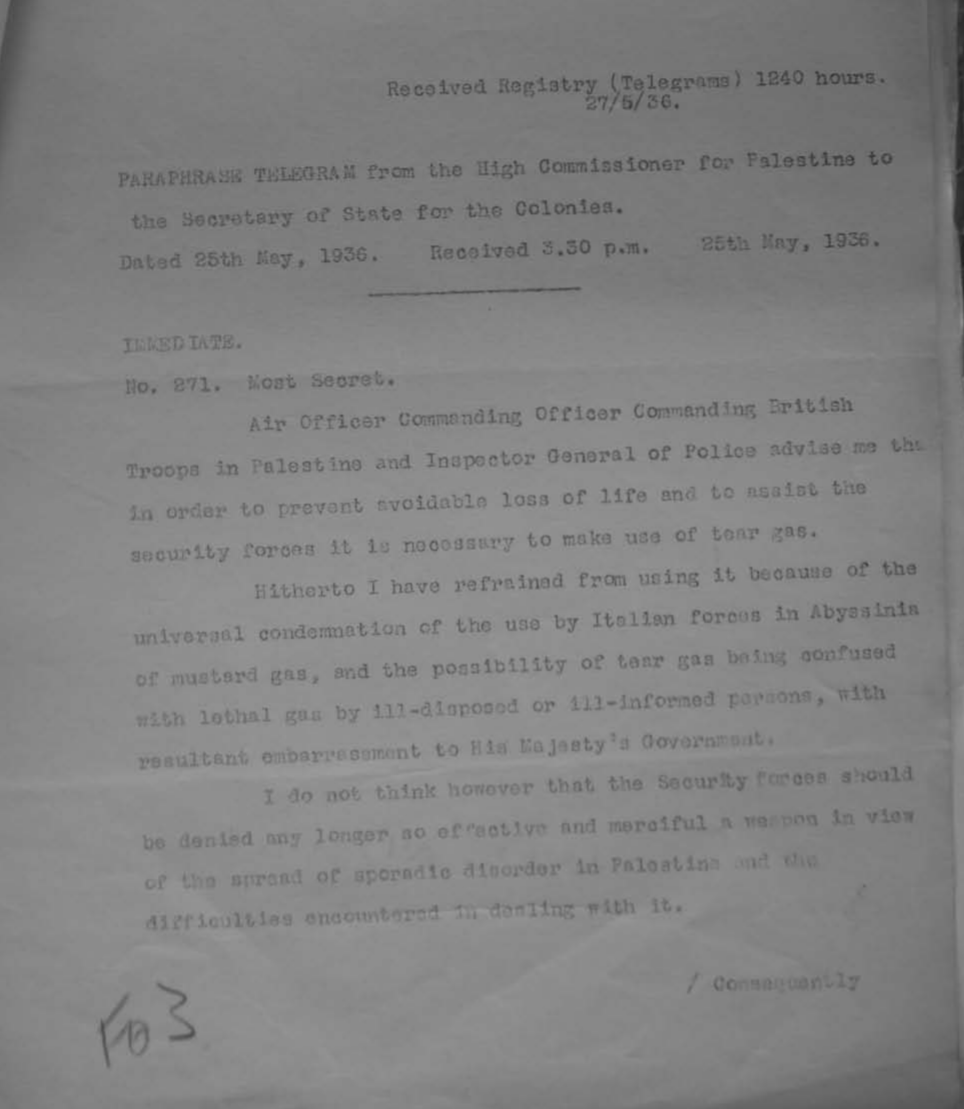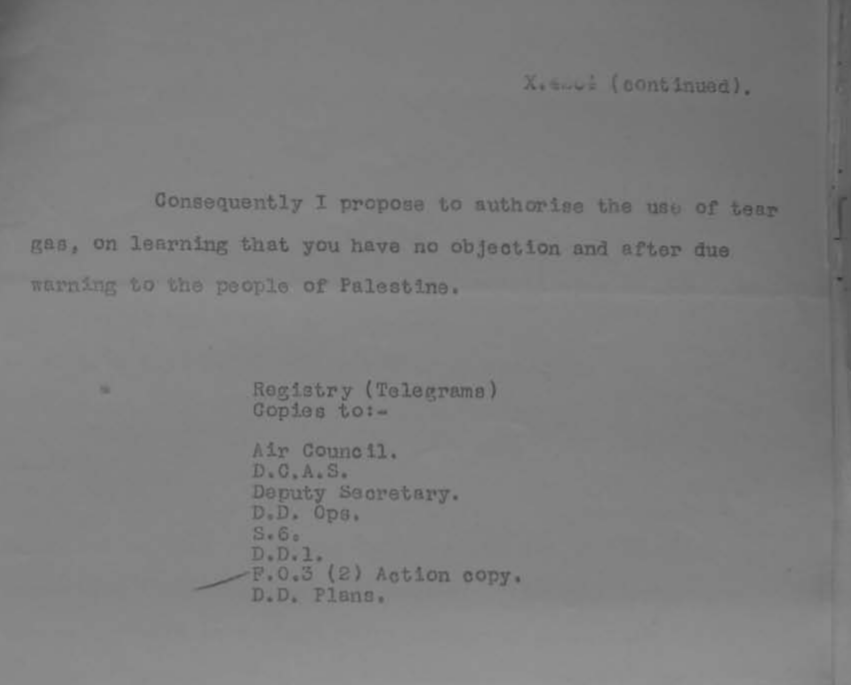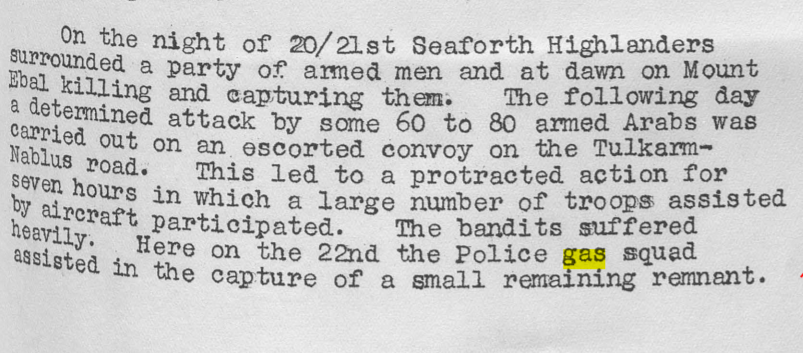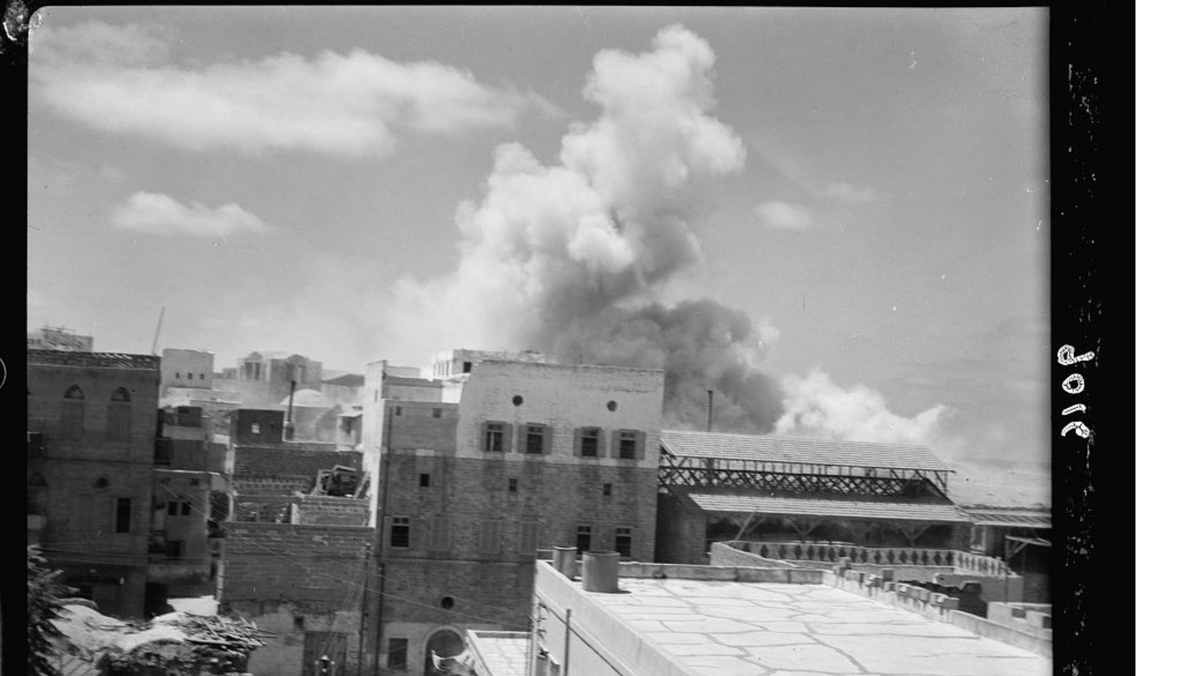Let's talk about the colonial history of tear gas. During British rule in Palestine, authorities thought tear gas was too dangerous/dastardly to use even against the "other" in colonies. #twitterstorians #Palestine #colonialism
Poison gases were banned under international law (Hague 1899). Those laws had been broken recently during the great war, and practically any military or political official with any knowledge of the war knew that such weapons were horrible.
It was banned in war at Geneva 1925, but permitted for police/civilian use). In 1922, the British circulated an American report on the use of "non lethal gas" for quelling riots. Palestinians had twice resorted to armed resistance to British policy and the army and RAF intervened
The Brits needed a way to restore control in cities without the army. To some, gas seemed the right way. To most, however, it was still associated with the horrors and war crimes of 1914-18. The Colonial Office was reluctant to forward this information, and insisted that:
The American report dealt with the "Battle of Blair Mountain" - a labour revolt in W. Virginia in 1921 and numerous other examples. The report was very partisan - showing some glee at the new republican cabinet's permission for use of gas.
The British Attache who forwarded the report mentioned the possible colonial uses for gas, although didn't think it would work outside cities:
Anyway, what I found in my research was a significant reluctance to use tear gas on protesters, armed or not. In fact, it was way easier to drop bombs or strafe them from the air than it was to use tear gas. They'd be horrified how it's used today.
Look at the meticulous accounting of kit during a shift change at the Nazareth police station 1932. No gas, and not many guns either. Station diaries like these record EVERY time weapons are drawn, for any reason. All weapons are checked in and out meticulously.
They were still using severe violence - bombs, shooting, destroying houses, etc, but using tear gas was considered a grave decision. The alternative, in "riots" were baton charges such as this, in Jaffa, 1933.
So when did they use gas? In "emergencies", like full-on revolt, as in 1936. The High Commissioner (governor) had to get permission from the Colonial secretary just to even make local decisions possible.
During the Palestinian revolt in 1936, special police squads used the gas, not the army (although I'm sure there are cases...).
So, we see that tear gas was taboo. Even in this context where violence was normal and liberally used against Palestinians, tear gas was thought to be too extreme. I think that's largely because of the FWW, but i'd welcome your thoughts.
What's really got me thinking, though, is what it means that today police & gov't use it so freely? Are demonstrators a separate population? Do authorities lack "consent of the governed" as in the colonial context? Even if not, surely this is not a healthy symptom of democracy.
This is very relevant of course https://twitter.com/eriklinstrum/status/1164206752700817408?s=21

 Read on Twitter
Read on Twitter